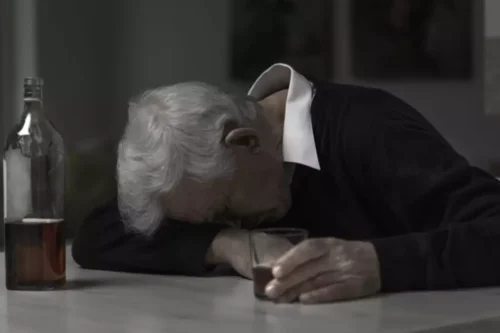When deciding to share a recovery story, it is important to consider timing and emotional stability. Having a supportive network of sober friends provides guidance and validation throughout the storytelling process. Additionally, the narrative should be balanced between honesty sharing your story in recovery and inspiration. Alcoholics Anonymous (AA) is a program that helps individuals struggling with alcohol addiction. Storytelling plays an important role in supporting members’ sobriety. It gives individuals a chance to connect with others who share similar experiences.
NAMI Smarts For Advocacy
While you share your recovery story, it’s vital to acknowledge the people who got you to the place you’re at today. It could be people in the room (like a sponsor) or people in your life (like a family member). Recognizing your support system can help you remember that there are people cheering for your continued recovery. Sharing your story with others makes you feel like one of the group. Some people begin sharing their stories in rehab, 12-Step programs, or support groups. Others may share it with family or friends, or speak at a community or church function.
Share this article
- It takes time and hard work in order to learn how to rebuild healthy relationships with others and yourself.
- By sharing these stories, people can recognize their own recovery journey’s value, and also give direction and hope to those still fighting.
- This can help someone really tune in during that portion of their recovery that they may have glanced over otherwise.
- We’re passionate advocates for addiction recovery and would love to help you share your story.
- Use the following steps to craft powerful content to inspire others, raise an issue and help your voice be heard.
- Learn how to tell your story to create impact and drive change.
Take a second and think about the person you were when you first walked through the doors of a rehab facility. If you were like most individuals in early recovery, you were probably anxious about what treatment would hold for you and the kind of person you would be when you left. Now that you are on the other side of the bridge imagine how hearing someone else’s success story could have encouraged you in those days. Sharing your story is essential for various reasons; one of the biggest is inspiring and encouraging someone as they first enter recovery. The benefits and significance of sharing your story are extraordinary, and they are worth more than you think. Our website offers an encrypted form to share your story using only your first name.
- By sharing personal recovery stories, individuals in recovery can connect with others who have had similar experiences, building a common bond of support.
- Nick’s work highlights Cumberland Heights’ commitment to outcome-oriented care, using proven techniques to put those struggling with substance use disorder on a path to success.
- It shows that you value yourself, your life, and your future enough to not only be heard, but to also be cared for.
How can storytelling in addiction recovery benefit both the storyteller and the audience?
Learn more about building a strong support system and developing a recovery plan. In May 2017, Zack had his first psychotic break and, following, a bipolar diagnosis. During those first few frightening months, Elisa and Zack failed to find relatable, https://ecosoberhouse.com/ hopeful stories from those who had been through a similar struggle. They decided to create The Manic Monologues to humanize and normalize mental illness. It isn’t easy to formulate the thoughts and memories, and then deliver your story.
Engaging Clients Through Stories
- Sharing your story can be a powerful way to take control of your recovery narrative by reframing it to focus on personal growth.
- When you share your recovery journey and how your recovery has impacted those around you, you show people they are not alone.
- As past chair of NAATP’s Ethics Committee, Jay was instrumental in important changes made to the organization’s code of ethics.
- People share their addiction recovery stories for a number of reasons.
- Additionally, “it’s really important to start rehab as soon as possible,” Ishibashi notes.
It can evoke emotional responses, increasing empathy and raising awareness about addiction issues. These stories inspire change by highlighting the challenges of recovery, showcasing the possibility of overcoming addiction and emphasizing the importance of seeking professional help. An effective recovery story should blend honesty and inspiration. It should talk about the challenges of addiction but also show triumphs in recovery.
The Healing Power of Sharing Recovery Stories in Alcoholics Anonymous and Beyond

Deja un comentario